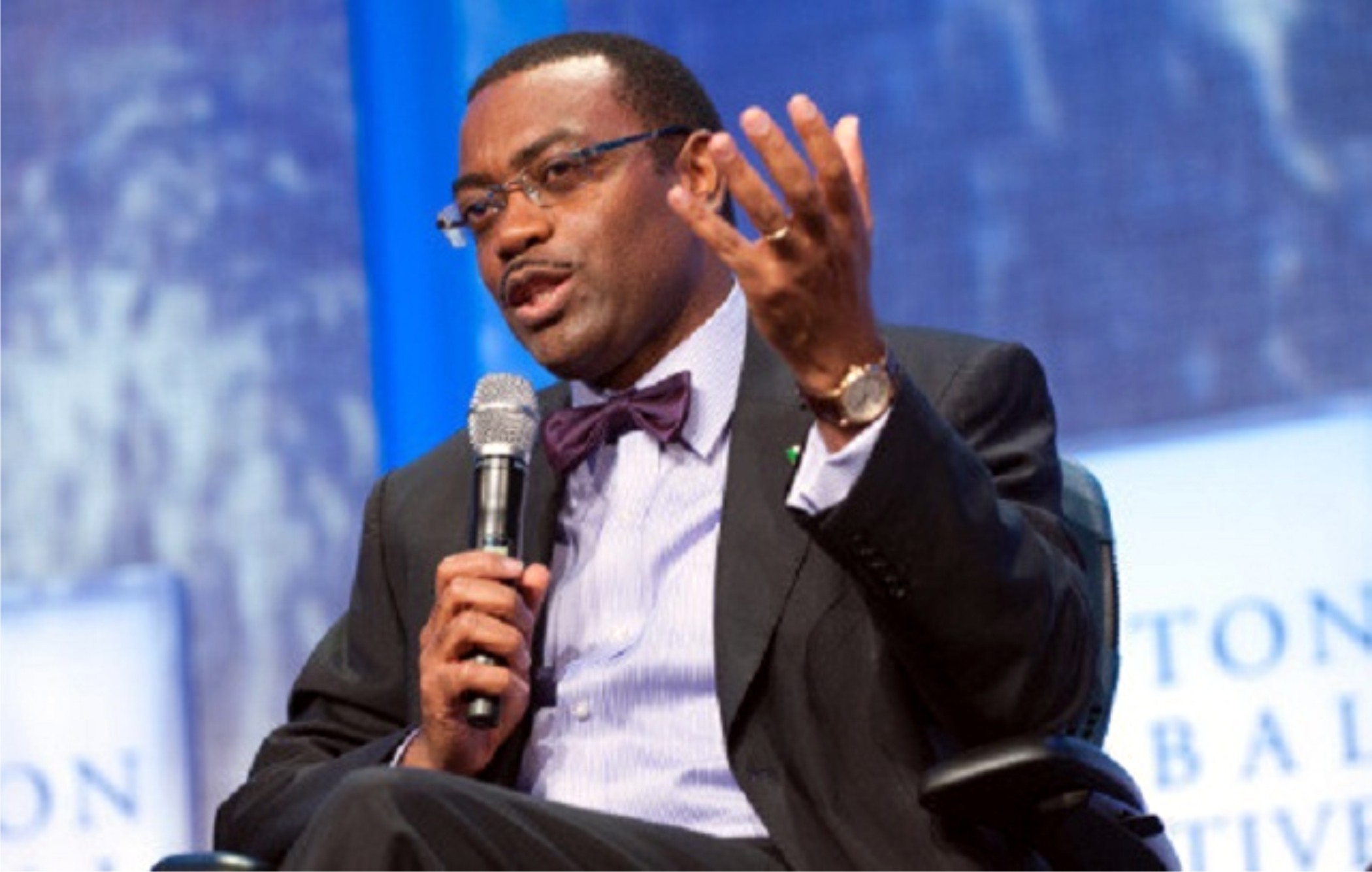Business
Africa’s Business, Expenditures To Rise To $5.6trn In Five Years –Adesina

The African Development Bank (AfDB) says the size of business and consumer expenditures in Africa will rise to 5.6 trillion dollars in five years.
This is contained in a speech delivered by AfDB President, Dr Akinwumi Adesina at African Leadership Persons of the Year Investiture Ceremonies and Awards Gala night at Johannesburg, South Africa last Saturday.
Adesina explained that the size of the food and agriculture business alone would reach one trillion dollars in just ten years.
According to him, with the African Continental Free Trade Area, the size of the economies will be 3.3 trillion dollars.
He said the Africa of the 21st century was keenly aware of its place in the world and determined to be a global investment haven.
“Over the past four years, we have helped 18 million people obtain access to electricity, 141 million people to agricultural technologies for food security, 13 million people to finance through private sector investee companies.
“And 101 million people to improved transport services, and 60 million people to improved water and sanitation.
“People such as cocoa farmer Antoine Mani Tonye from Cameroon who has seen healthy yields from the moment he began planting a locally adapted seed variety.
“People such as millet seller Robiro Kadokah from Togo whose business has been thriving since the opening of a new highway in his area.
“And people such as IT-specialist Jeanne Yam-fashije from Rwanda who helps girls in her country excel in science, technology, engineering and math.
“I truly believe there’s never been a more exciting time to be an African. Opportunities abound all around. African economies are growing well.
“ In 2019, 17 countries grew at 3.5 per cent and 20 countries grew at five per cent and above,” he stated.
Business
Agency Gives Insight Into Its Inspection, Monitoring Operations

Business
BVN Enrolments Rise 6% To 67.8m In 2025 — NIBSS

The Nigeria Inter-Bank Settlement System (NIBSS) has said that Bank Verification Number (BVN) enrolments rose by 6.8 per cent year-on-year to 67.8 million as at December 2025, up from 63.5 million recorded in the corresponding period of 2024.
In a statement published on its website, NIBSS attributed the growth to stronger policy enforcement by the Central Bank of Nigeria (CBN) and the expansion of diaspora enrolment initiatives.
NIBSS noted that the expansion reinforces the BVN system’s central role in Nigeria’s financial inclusion drive and digital identity framework.
Another major driver, the statement said, was the rollout of the Non-Resident Bank Verification Number (NRBVN) initiative, which allows Nigerians in the diaspora to obtain a BVN remotely without physical presence in the country.
A five-year analysis by NIBSS showed consistent growth in BVN enrolments, rising from 51.9 million in 2021 to 56.0 million in 2022, 60.1 million in 2023, 63.5 million in 2024 and 67.8 million by December 2025. The steady increase reflects stronger compliance with biometric identity requirements and improved coverage of the national banking identity system.
However, NIBSS noted that BVN enrolments still lag the total number of active bank accounts, which exceeded 320 million as of March 2025.
The gap, it explained, is largely due to multiple bank accounts linked to single BVNs, as well as customers yet to complete enrolment, despite the progress recorded.
Business
AFAN Unveils Plans To Boost Food Production In 2026
-

 News3 days ago
News3 days agoOji Clears Air On Appointment Of 15 Special Advisers By Fubara
-

 News3 days ago
News3 days agoNigeria Has Woken Up From Slumber Under Tinubu – Shettima
-

 Featured3 days ago
Featured3 days agoRivers: Impeachment Moves Against Fubara, Deputy Hits Rock …As CJ Declines Setting Up Panel
-
City Crime3 days ago
Health Commissioner Extols Fubara’s Commitment To Community Healthcare Delivery
-
News3 days ago
Nigeria To Begin Exporting Urea In 2028 -NMDPRA
-
Niger Delta3 days ago
Tinubu, Leading Nigeria To Sustainable Future – Okowa … Lauds Oborevwori Over Uromi Junction Flyover Construction
-
News3 days ago
US – Nigeria Security Engagement Translating Into Tangible Operational Gains – NSA
-

 News3 days ago
News3 days agoKing Jaja Impacted Beyond Rivers -Deputy Gov

